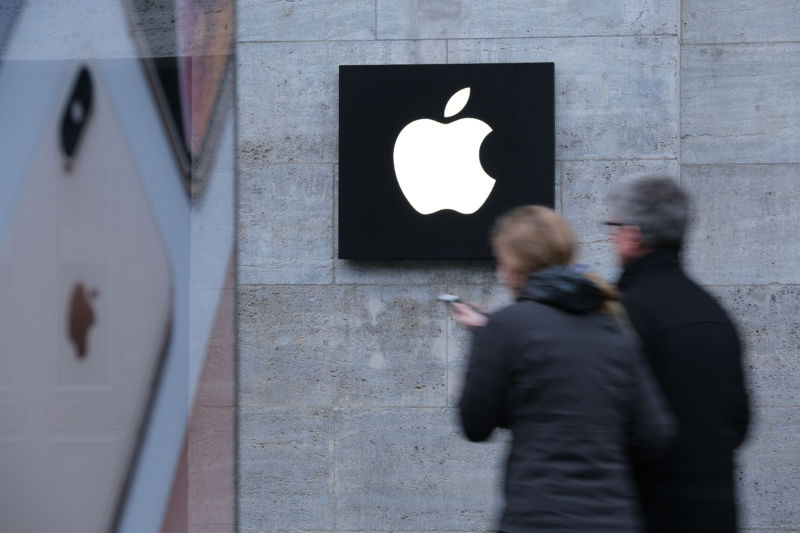
Apple and Intel have talked about a possible business deal between the two companies that would have Apple acquiring parts of Intel's smartphone-modem chip business, according to a report in The Wall Street Journal. Reportedly, the talks began last summer but stopped recently around the time that Apple and Qualcomm settled their patent dispute.
Intel gained more of Apple's business when it began supplying smartphone-modem chips while the iPhone maker feuded with Qualcomm. That legal battle over patent royalties raged on for years until Apple and Qualcomm were set to meet in court earlier this month. On the first day of the trial, the two companies announced they reached a deal "to dismiss all litigation between the two companies worldwide."
Qualcomm agreed to continue to supply Apple with smartphone chips under the deal, and Apple agreed to pay an undisclosed sum for the six-year licensing agreement. On the same day, Intel announced it would discontinue its 5G chipmaking efforts, an operation that Apple encouraged it to pursue for use in future iPhones. It's unclear which decision came first—Apple's and Qualcomm's decision to settle or Intel's abandonment of 5G modems—but it's likely that the two were in some way related.
According to The Wall Street Journal's report, Apple's talks with Intel have ended, and Intel is considering other options for its smartphone-modem chip business. It could find another buyer in a company like Broadcom, Samsung, or China's Unisoc, but nothing has been determined yet. There's also no word if Apple and Intel will open up talks about this subject again in the future.
If Apple and Intel had reached a deal, it would have been huge for both companies. Intel would offload a part of its operation that was reportedly losing around $1 billion annually. Apple, however, would have taken a giant step forward in its chip engineering efforts.
But this type of deal would have been very different for Apple in the context of its recent strategy. Smartphone sales across the board—not just iPhones—have been slowing, so Apple has been pursuing other business efforts to open up new revenue streams. The company has been laser-focused on its services business by adding new projects to its portfolio. Apple's highly anticipated TV streaming service, TV+, will debut this fall alongside its gaming subscription service Apple Arcade. Apple News+, its news and magazine subscription service, is already available in a separate section of the existing Apple News app.
Regardless of Intel's involvement, Apple has been investing in engineers as of late. At the end of 2018, the company spent $600 million on a deal with Dialog Semiconductor, a UK-based chipmaker and longtime Apple partner. The iPhone maker acquired licensing rights to power-management technologies in the deal, which may be used to improve battery life in devices like the Apple Watch and AirPods. Apple also hired engineers to work on its own in-house chip design efforts.
reader comments
70